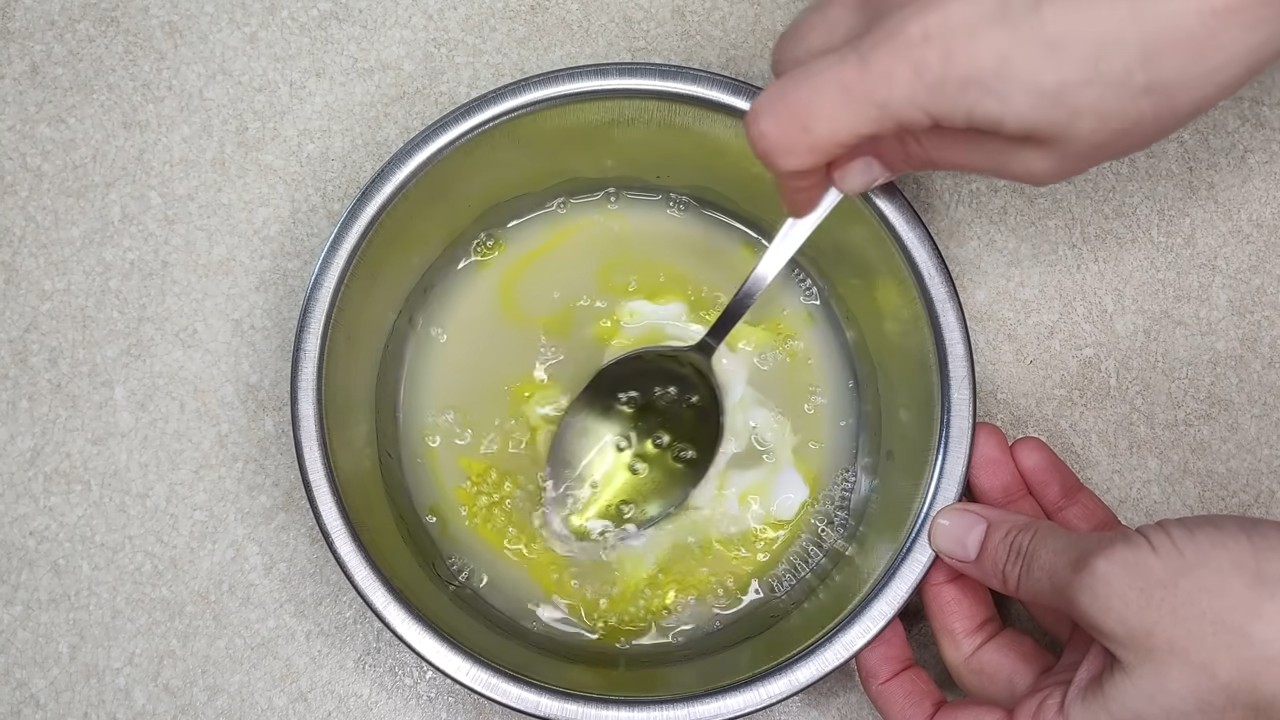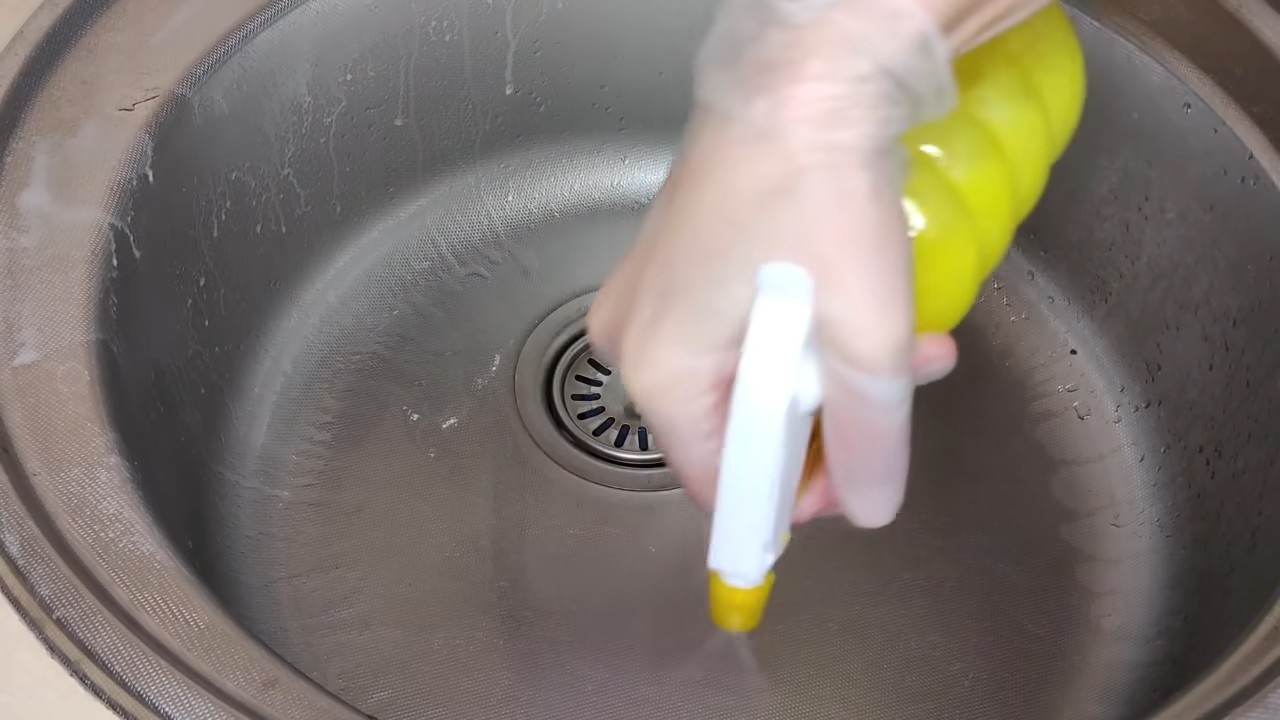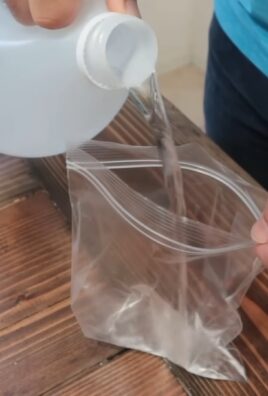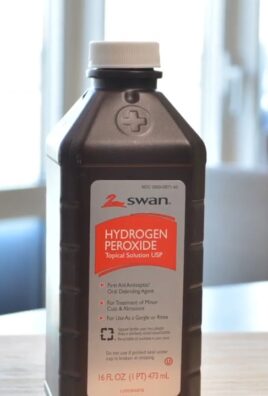Lemon Dish Soap Cleaner: Your Secret Weapon for a Sparkling Home, Naturally!
Ever feel overwhelmed by the sheer number of cleaning products cluttering your cabinets? Each promising a different miracle, yet often filled with harsh chemicals? I know I have! That’s why I’m so excited to share this incredible DIY trick with you: a powerful and effective lemon dish soap cleaner that you can whip up in minutes, using ingredients you probably already have in your kitchen.
The use of lemons for cleaning isn’t new. In fact, throughout history, lemons have been prized for their natural antibacterial and degreasing properties. From ancient civilizations using lemon juice to freshen the air to our grandmothers relying on it to brighten laundry, this humble fruit has a long and storied past as a cleaning powerhouse. But why buy expensive lemon-scented cleaners when you can create your own, even better version?
This DIY lemon dish soap cleaner isn’t just about saving money (though that’s a definite perk!). It’s about creating a healthier home environment for you and your family. By ditching the harsh chemicals and embracing natural ingredients, you’re reducing your exposure to potentially harmful toxins. Plus, the fresh, invigorating scent of lemon will leave your home smelling clean and revitalized. So, are you ready to unlock the cleaning power of lemons? Let’s get started!

DIY Lemon-Infused Dish Soap: A Sparkling Clean Hack!
Hey there, fellow DIY enthusiasts! I’m so excited to share one of my favorite kitchen hacks with you: making your own lemon-infused dish soap. Not only is it incredibly easy, but it’s also a fantastic way to reduce plastic waste, save money, and enjoy a naturally fresh scent while you’re tackling those dirty dishes. Plus, who doesn’t love the cleaning power of lemon? Let’s get started!
What You’ll Need: The Essential Supplies
Before we dive into the process, let’s gather all the necessary ingredients and equipment. Trust me, having everything ready beforehand will make the whole experience much smoother and more enjoyable.
* **Unscented Liquid Dish Soap:** This is your base. I recommend choosing a natural, plant-based option if you’re aiming for a more eco-friendly cleaner. Look for brands that are free of harsh chemicals and dyes. About 32 ounces is a good starting point.
* **Lemons:** Fresh lemons are key! You’ll need about 4-6 lemons, depending on their size and how strong you want the lemon scent to be. Organic lemons are preferable, especially if you plan on using the peels.
* **White Vinegar:** Vinegar is a natural degreaser and disinfectant, adding extra cleaning power to your dish soap. We’ll use about 1/4 cup.
* **Water (Distilled or Filtered):** To dilute the mixture and achieve the desired consistency.
* **Essential Oil (Optional):** While the lemons provide a wonderful scent, you can add a few drops of lemon essential oil or other citrus oils (like grapefruit or orange) for an extra boost of fragrance and cleaning power.
* **Glycerin (Optional):** A small amount of glycerin (vegetable glycerin is best) can help to keep your hands moisturized while washing dishes. It’s especially helpful if you have sensitive skin.
* **Glass Jar or Dispenser:** A clean, empty dish soap bottle or a glass jar with a pump dispenser is perfect for storing your homemade dish soap. Make sure it’s thoroughly cleaned and dried before use.
* **Knife and Cutting Board:** For slicing the lemons.
* **Grater or Zester:** To zest the lemon peels (optional, but highly recommended for maximum lemon flavor).
* **Measuring Cups and Spoons:** For accurate measurements.
* **Funnel:** To easily pour the mixture into your chosen container.
* **Pot:** For simmering the lemon peels.
* **Strainer:** To remove the lemon peels from the infused water.
Step-by-Step Guide: Creating Your Lemon-Infused Dish Soap
Now for the fun part! Follow these steps carefully, and you’ll have a batch of amazing lemon-infused dish soap in no time.
1. **Prepare the Lemons:** Thoroughly wash the lemons to remove any dirt or residue. If you’re using organic lemons, you can skip the scrubbing, but it’s always a good idea to give them a rinse.
2. **Zest the Lemons (Optional):** Using a grater or zester, carefully remove the zest from the lemons. Be sure to only zest the outer yellow layer, avoiding the white pith underneath, as it can be bitter. Set the zest aside. This step is optional, but I highly recommend it because the zest contains a lot of the lemon’s essential oils and will significantly enhance the fragrance and cleaning power of your dish soap.
3. **Slice the Lemons:** Cut the lemons into thin slices. This will help release their juices and oils during the infusion process.
4. **Infuse the Lemon Peels (and Zest):** Place the lemon slices (and zest, if you’re using it) into a pot. Cover them with about 2 cups of water. Bring the mixture to a simmer over medium heat. Reduce the heat to low and let it simmer for about 30 minutes, allowing the lemon peels to release their oils and fragrance into the water. This step is crucial for creating a potent lemon infusion.
5. **Cool and Strain the Lemon Infusion:** Remove the pot from the heat and let the lemon-infused water cool completely. Once cooled, strain the mixture through a fine-mesh strainer to remove the lemon peels and zest. Discard the solids. You should now have a fragrant lemon-infused water.
6. **Combine the Ingredients:** In a large bowl or measuring cup, combine the unscented dish soap, lemon-infused water, and white vinegar. If you’re using essential oil, add a few drops at this stage. If you’re using glycerin, add about a teaspoon.
7. **Mix Gently:** Gently stir the ingredients together until they are well combined. Avoid vigorous stirring, as this can create excessive bubbles.
8. **Adjust Consistency (If Needed):** If the dish soap is too thick, add a little more water until you reach your desired consistency. If it’s too thin, you can add a small amount of cornstarch (mixed with a little water to form a slurry) to thicken it up.
9. **Transfer to Container:** Using a funnel, carefully pour the lemon-infused dish soap into your chosen container (dish soap bottle or glass jar with a pump dispenser).
10. **Label and Store:** Label your container with the date and contents. Store your homemade dish soap in a cool, dry place.
Tips and Tricks for the Best Results
Here are a few extra tips and tricks to help you create the perfect batch of lemon-infused dish soap:
* Use High-Quality Ingredients: The better the quality of your ingredients, the better the results. Opt for natural, plant-based dish soap and fresh, organic lemons whenever possible.
* Adjust the Lemon Scent: If you prefer a stronger lemon scent, use more lemons or add more lemon essential oil. You can also experiment with different citrus essential oils, such as grapefruit or orange.
* Experiment with Additives: Feel free to experiment with other natural additives, such as tea tree oil (for its antibacterial properties) or aloe vera gel (for its moisturizing benefits).
* Test Before Use: Before using your homemade dish soap on all your dishes, test it on a small, inconspicuous area to ensure it doesn’t damage the surface.
* Shake Before Each Use: Over time, the ingredients may separate slightly. Simply shake the container gently before each use to re-combine them.
* Shelf Life: Your homemade lemon-infused dish soap should last for about 1-2 months. If you notice any changes in color, smell, or consistency, it’s best to discard it.
* Consider the Water Hardness: If you have hard water, you might need to add a bit more vinegar to your dish soap to help cut through grease and grime.
* For Extra Cleaning Power: Add a tablespoon of washing soda (sodium carbonate) to the mixture for extra cleaning power, especially for tough stains and greasy dishes. Be careful when handling washing soda, as it can be irritating to the skin. Wear gloves when using it.
* Don’t Overdo the Essential Oils: While essential oils can add a lovely fragrance and cleaning boost, using too much can irritate the skin. Start with a few drops and add more as needed.
* Recycle or Compost: Don’t forget to recycle your lemon peels or compost them to reduce waste.
Troubleshooting: Common Issues and Solutions
Even with the best instructions, sometimes things don’t go exactly as planned. Here are some common issues you might encounter and how to fix them:
* Dish Soap is Too Thin: If your dish soap is too thin, try adding a small amount of cornstarch mixed with water to thicken it up. Alternatively, you can let it sit for a day or two, as it may thicken naturally over time.
* Dish Soap is Too Thick: If your dish soap is too thick, simply add a little more water until you reach your desired consistency.
* Not Enough Lemon Scent: If the lemon scent isn’t strong enough, try adding more lemon zest or lemon essential oil. You can also try simmering the lemon peels for a longer period of time to extract more of their oils.
* Dish Soap is Cloudy: A cloudy appearance is usually nothing to worry about and is often caused by the combination of different ingredients. It doesn’t affect the cleaning power of the dish soap.
* Separation of Ingredients: Over time, the ingredients may separate slightly. Simply shake the container gently before each use to re-combine them.
* Residue on Dishes: If you notice a residue on your dishes after washing, it could be due to hard water or using too much dish soap. Try using less dish soap or adding more vinegar to the mixture.
Why I Love This DIY Hack
I absolutely adore this DIY lemon-infused dish soap hack for so many reasons. First and foremost, it’s incredibly satisfying to create something useful and eco-friendly with my own hands. Knowing that I’m reducing plastic waste and using natural ingredients makes me feel good about my impact on the environment.
Secondly, the fresh, clean

Conclusion
So, there you have it! Transforming ordinary lemons into a powerful and delightfully scented lemon dish soap cleaner is not just a clever DIY project; it’s a game-changer for your kitchen cleaning routine. We’ve walked you through the simple steps, highlighting how easy it is to create a natural, effective, and budget-friendly alternative to store-bought options.
But why is this DIY trick a must-try? Beyond the satisfaction of creating something yourself, this lemon-infused cleaner offers a multitude of benefits. First and foremost, it’s a fantastic way to reduce your exposure to harsh chemicals often found in commercial dish soaps. You know exactly what’s going into your cleaner, giving you peace of mind, especially if you have sensitive skin or are concerned about the environmental impact of your cleaning products.
Secondly, the cleaning power of lemons is undeniable. The citric acid acts as a natural degreaser and disinfectant, cutting through grease and grime with ease. Plus, the refreshing lemon scent leaves your dishes and kitchen smelling clean and revitalized, a far cry from the artificial fragrances often used in conventional soaps.
And let’s not forget the cost savings! Lemons are often more affordable than purchasing specialized dish soap, especially if you can find them on sale or even grow your own. This DIY project allows you to stretch your budget without compromising on cleaning performance.
Looking for variations? Absolutely! Feel free to experiment with different essential oils to customize the scent. A few drops of tea tree oil can boost the antibacterial properties, while lavender oil can add a calming aroma. You can also adjust the ratio of lemon juice to water to achieve your desired consistency and cleaning strength. For extra scrubbing power, consider adding a small amount of baking soda to the mixture. Just be mindful that baking soda can be abrasive on delicate surfaces.
Another great variation is to infuse the lemon peels in vinegar for a few weeks before using the infused vinegar in your dish soap recipe. This will create a super-charged cleaning solution that is effective at removing stubborn stains and odors.
This DIY lemon dish soap cleaner is more than just a recipe; it’s a step towards a more sustainable and healthier lifestyle. It’s a chance to embrace natural cleaning solutions and reduce your reliance on harsh chemicals.
We wholeheartedly encourage you to give this DIY trick a try. It’s simple, effective, and incredibly rewarding. Once you experience the cleaning power and refreshing scent of homemade lemon dish soap, you’ll never want to go back to store-bought alternatives.
Don’t just take our word for it – try it yourself and see the difference! And most importantly, we want to hear about your experience. Share your tips, variations, and results in the comments below. Let’s build a community of DIY enthusiasts who are passionate about natural cleaning solutions. Your feedback will help others discover the joys and benefits of making their own lemon dish soap cleaner. We can’t wait to see what you create!
Frequently Asked Questions (FAQ)
1. How long does homemade lemon dish soap cleaner last?
Homemade lemon dish soap cleaner, without added preservatives, typically lasts for about 1-2 weeks when stored properly. To maximize its shelf life, keep it in an airtight container in a cool, dark place, away from direct sunlight and heat. The lemon juice can degrade over time, so it’s best to make smaller batches that you can use up within this timeframe. If you notice any changes in color, smell, or consistency, it’s best to discard it and make a fresh batch. Adding a small amount of vinegar can help to extend the shelf life slightly due to its natural preservative properties.
2. Can I use bottled lemon juice instead of fresh lemons?
While fresh lemons are ideal for their superior scent and potency, you can use bottled lemon juice in a pinch. However, keep in mind that bottled lemon juice may not have the same vibrant fragrance or cleaning power as freshly squeezed juice. Look for bottled lemon juice that is 100% juice and doesn’t contain any added preservatives or sugars. You might need to use a slightly larger quantity of bottled juice to achieve the same results as fresh lemons. Also, be aware that the shelf life of the finished dish soap might be shorter when using bottled juice.
3. Is lemon dish soap cleaner safe for all types of dishes?
Generally, lemon dish soap cleaner is safe for most types of dishes, including glass, ceramic, and stainless steel. However, it’s best to avoid using it on delicate or porous materials like unsealed wood, cast iron (unless properly seasoned), or certain types of plastics that may be sensitive to citric acid. Always test the cleaner on a small, inconspicuous area first to ensure it doesn’t cause any damage or discoloration. For cast iron, it’s recommended to use a mild soap and re-season after washing.
4. Can I add other ingredients to my lemon dish soap cleaner?
Absolutely! One of the great things about DIY cleaning products is the ability to customize them to your liking. As mentioned earlier, you can add essential oils for fragrance and added benefits. Tea tree oil is a great antibacterial addition, while lavender oil provides a calming scent. A small amount of baking soda can boost the cleaning power, but be cautious when using it on delicate surfaces. You can also add a tablespoon of white vinegar to help cut through grease and remove hard water stains. Experiment with different combinations to find what works best for you.
5. How do I store my homemade lemon dish soap cleaner?
The best way to store your homemade lemon dish soap cleaner is in an airtight container in a cool, dark place. A glass bottle or jar with a tight-fitting lid is ideal. Avoid storing it in direct sunlight or near heat sources, as this can cause the lemon juice to degrade and shorten the shelf life. Label the container with the date you made the cleaner so you can keep track of its freshness. If you notice any changes in color, smell, or consistency, it’s best to discard it and make a fresh batch.
6. Is this lemon dish soap cleaner safe for septic systems?
Yes, lemon dish soap cleaner is generally considered safe for septic systems. Unlike many commercial dish soaps that contain harsh chemicals and phosphates, lemon juice is a natural and biodegradable ingredient. It won’t disrupt the balance of bacteria in your septic tank, which is essential for proper functioning. However, it’s always a good idea to use any cleaning product sparingly, even natural ones, to avoid overloading your septic system.
7. Can I use this cleaner in my dishwasher?
While you can technically use this lemon dish soap cleaner in your dishwasher, it’s not recommended as a primary dishwasher detergent. Homemade dish soap typically doesn’t contain the same surfactants and rinsing agents as commercial dishwasher detergents, which can lead to residue buildup and spotting on your dishes. If you do choose to use it in your dishwasher, use a very small amount (about 1-2 tablespoons) and add a cup of white vinegar to the rinse aid compartment to help prevent spotting. For optimal results, it’s best to stick to commercial dishwasher detergents specifically formulated for dishwashers.
8. What if my lemon dish soap cleaner is too watery?
If your lemon dish soap cleaner is too watery, you can thicken it by adding a small amount of liquid castile soap. Start with a tablespoon at a time and mix well until you reach your desired consistency. You can also reduce the amount of water in the original recipe next time you make it. Another option is to let the mixture sit for a few hours, as the lemon juice may naturally thicken slightly over time.
9. Can I use different types of lemons for this recipe?
Yes, you can use different types of lemons for this recipe, such as Meyer lemons or Eureka lemons. Meyer lemons are sweeter and less acidic than Eureka lemons, so they will produce a milder cleaner with a slightly different scent. Experiment with different varieties to find your favorite flavor and cleaning power. You can even mix different types of lemons for a unique blend.
10. What are the benefits of using lemon dish soap cleaner compared to commercial dish soap?
The benefits of using lemon dish soap cleaner compared to commercial dish soap are numerous. It’s a natural and non-toxic alternative, free from harsh chemicals, artificial fragrances, and dyes. It’s also more environmentally friendly, as it’s biodegradable and reduces your reliance on plastic packaging. Lemon juice is a natural degreaser and disinfectant, effectively cleaning dishes while leaving a refreshing scent. Plus, it’s a cost-effective option, especially if you can find lemons on sale or grow your own. By making your own dish soap, you have complete control over the ingredients and can customize it to your specific needs and preferences.




Leave a Comment